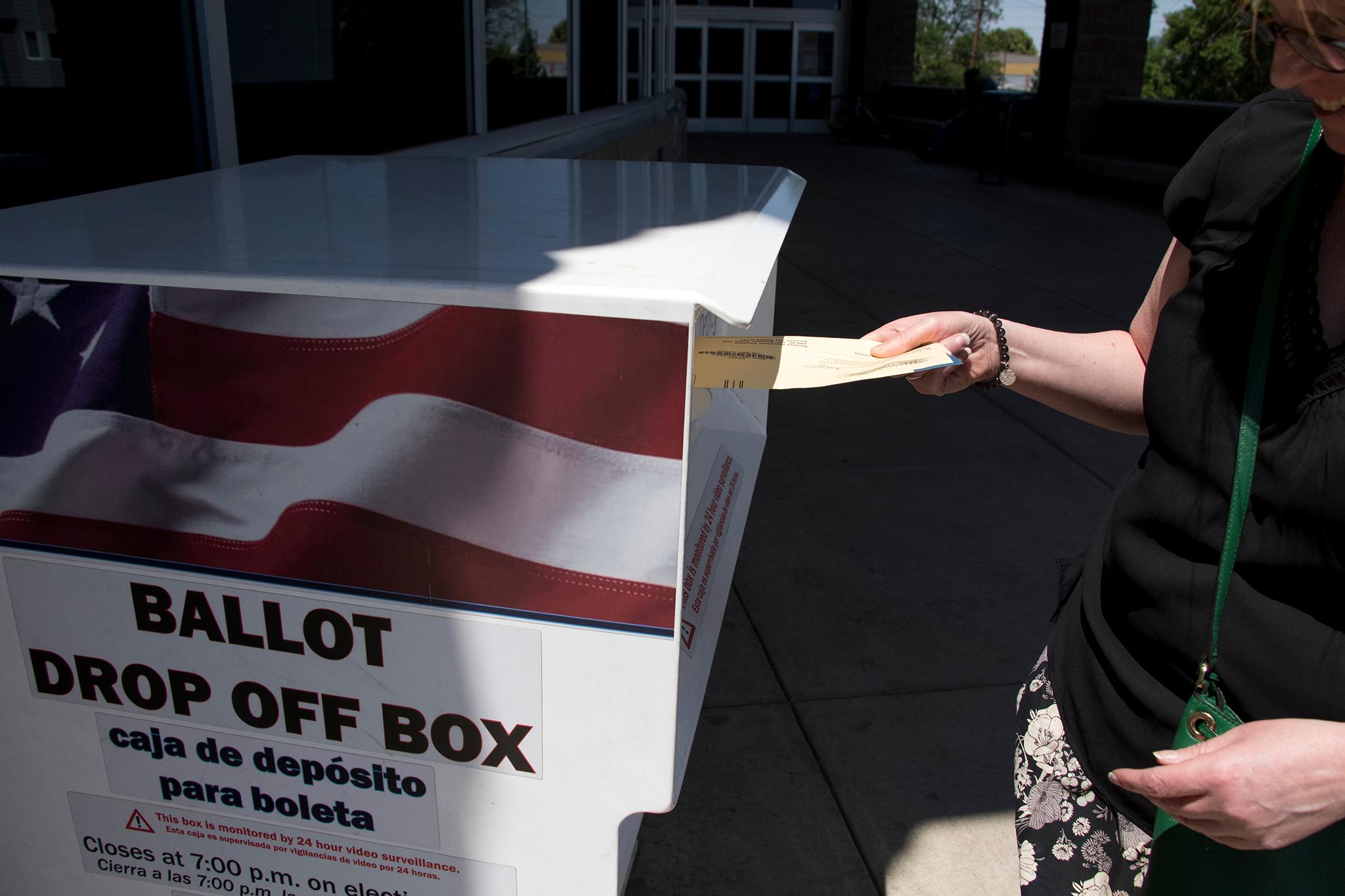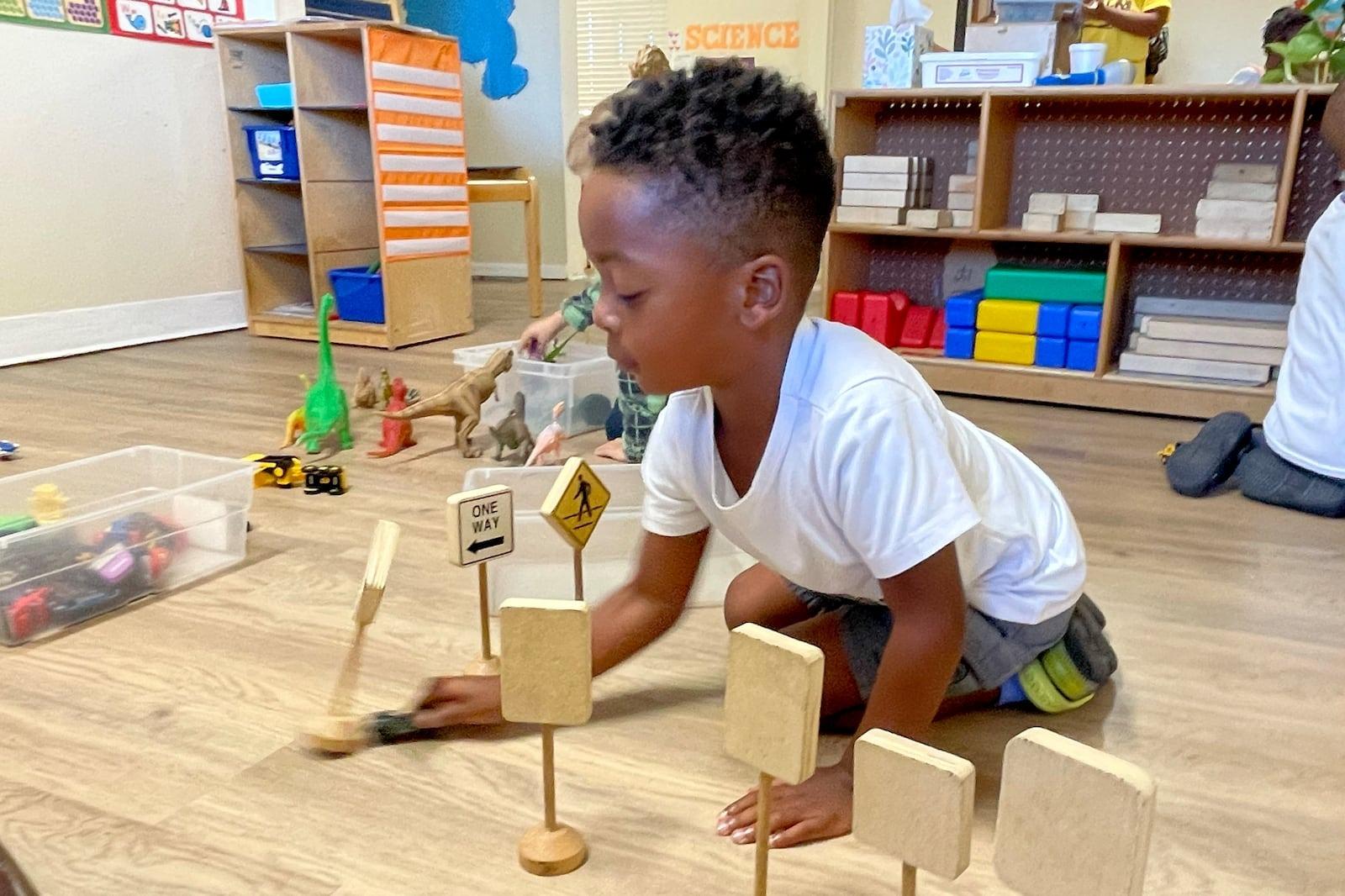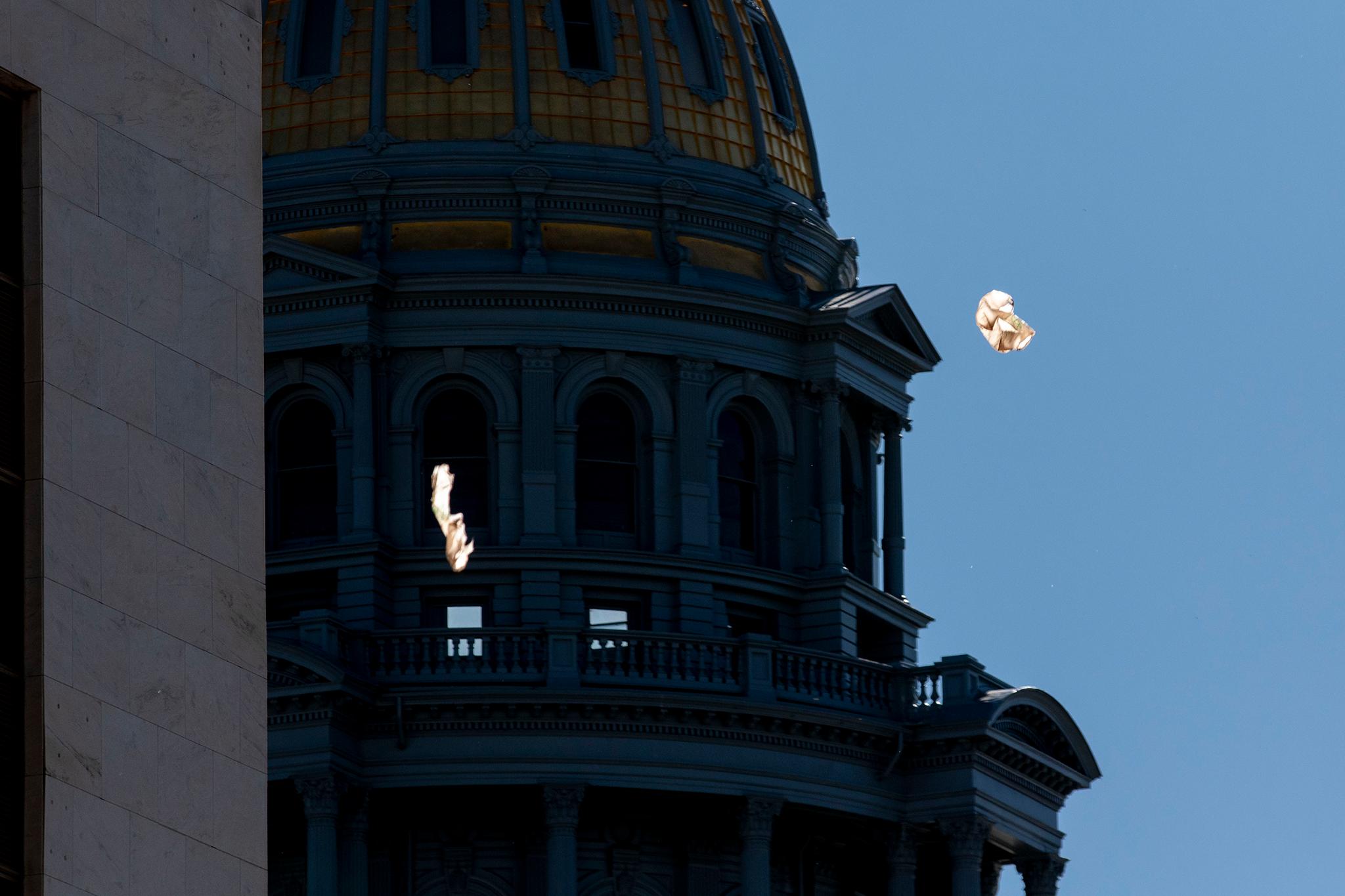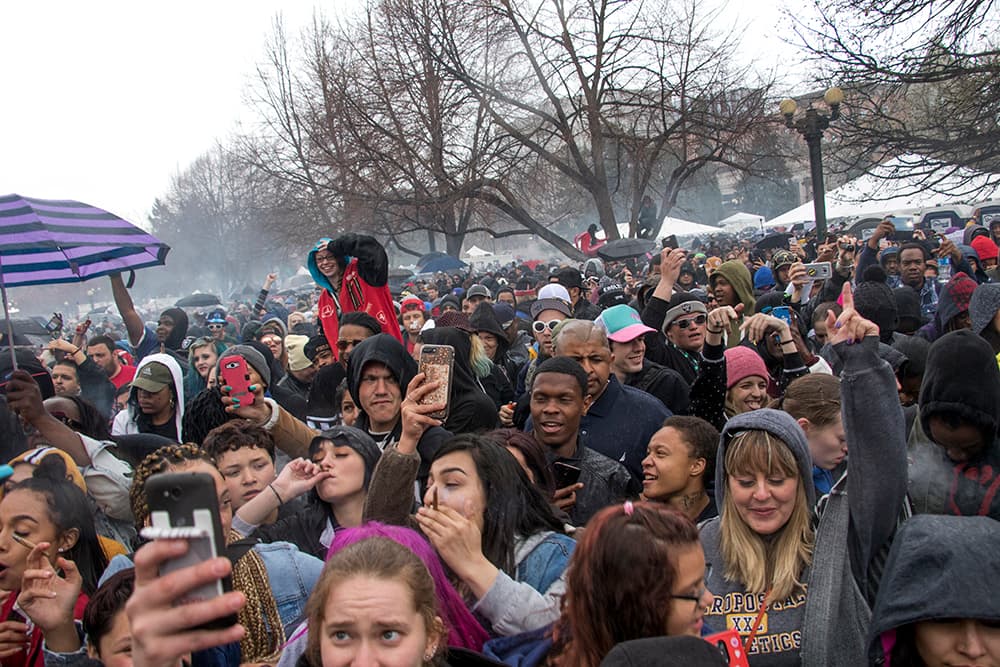The candidates for governor are the headliners of this primary election, but there are honestly fiercer and fiercer fights as you go down the ballot here in the Denver area.
Here's the scene.
We've reported on the competition to be the Democratic nominee for attorney general in which one candidate brags about his clean campaign and the other doesn't. We've reported on the battle between the progressive and establishment wings of the Democratic party in the primary to represent a Denver district and an Aurora-plus-suburbs district in the U.S. Congress. We've reported on unusual outside spending in a state Senate race and a state House race as a flood of candidates duke it out for the opportunity to represent their neighborhoods in the Colorado General Assembly.
And here's what we'll be watching for.
Between other tasks, we had a couple of quick chats. Let us know what you're watching for by emailing us at [email protected] or by tweeting at us.
On the Democratic polls
Dave Burdick: Esteban, let's think quickly about some of the things people have been shouting (or whispering) in our general direction lately about this election. First: The race for the Dem nomination for governor sure feels closer than the polls had it pegged. Will Polis really win it in a walk, or will Kennedy (or Johnston) creep up and add some suspense to the night -- or even an upset?
Esteban L. Hernandez: I agree that this race is much closer than polls suggest and I wouldn't be surprised if the winner wins by a single-digit margin. Having said that, the general consensus among people I've spoken to mostly agree that this is Polis' race to lose. It's really hard to ignore $11 million, which is the approximate amount of money he's pumped into his own campaign and has allowed him to be on your TV, your doorknob and your Facebook feed.
But on Monday, people were talking about how it could end up being closer than anticipated -- Cinamon Watson, co-founder of Blueprint Strategies and a Republican campaign consultant, told me she thinks one potential surprise is Johnston coming in second. She said Johnston has low name recognition but has built a lot of momentum recently, while Kennedy has mostly cooled off since her strong state assembly turnout.
I think an upset is possible, especially if people react negatively to the amount of money Polis is spending.
Ian Silverii, executive director of ProgressNow Colorado, told me people will be talking about who took votes from whom. His guess: People will assume Lynne takes from Kennedy, Johnston from Polis.
On the progressive vs. establishment narrative
DB: Interesting -- and if Johnston is in fact taking some of those votes from Polis, maybe it does set the table for a closer finish among the top three. In three Democratic primaries for congressional races, there are pretty clear archetypes -- self-billed progressive candidates challenging well-resourced and establishment-endorsed frontrunners. I talked to state Rep. Leslie Herod this morning -- keep in mind, readers, she's a Democrat who has endorsed Polis, Crow and Neguse, but isn't saying anything about CD1 -- and she said she got up today and saw people working as if all of their races were close, none of the folks with establishment support taking anything for granted.
She pointed out that she's a veteran of a hotly contested primary, and when I asked if there'd be any takeaway if Rao, Williams and Tillemann all lose, here's what she told me: "I think that what we need right now as a country is people who are willing to bring people together. I think if there is a particular wing of the Democratic Party that is more interested in dividing rather than uniting, and they lose these races ... then that will be the takeaway."
Has anybody made any real guesses at how close any of these will be?
EH: On Monday, I talked to former Colorado Republican party chairman Dick Wadhams, who said the CD1 results could be telling: "I think it’s going to reveal some underlying weakness to Congresswoman DeGette, which be the beginning of a more serious challenge in 2020 for a more serious candidate."
DB: That almost sounds like a different takeaway from Herod's.
On the competitiveness of the Republican gubernatorial race
DB: Over the course of the Republican primary for governor, I think pretty much only one person has ever told you they saw a chance for anybody -- Victor Mitchell in this case -- to pull off an upset. Is that right?
EH: I've never heard anyone suggest any frontrunner among Republicans other than Stapleton (and granted, I've only been covering this race since March). He's just really popular; the way he gained a spot on the primary was unprecedented, just days after abandoning his petitions. For his part, Mitchell has been making a lot of noise on TV, and he's kinda the Republican Polis, as he's spent $5 million of his own money for his campaign (Stapleton has also put in about $1 million).
Wadhams told me, "I would be surprised but not shocked if one of the two primaries did not nominate a frontrunner.
"It just feels like the Republican primary is tight."
And don't forget: Before her collapse at the state assembly, Attorney General Cynthia Coffman was doing pretty well. She was poised to be the biggest winner at the assembly, a spotlight that ended up being taken by Stapleton and to a lesser extent, former Parker Mayor Greg Lopez, who was the second biggest surprise that day. And back in March, a poll showing Stapleton in the lead had Mitchell at 5 percent. Single-digit support. Three months later? He had earned 23 percent support among respondents in a similar poll. That's a pretty significant gain, and if I'm among Stapleton's people, I'm rubbing my chin and looking at that number pretty hard.
DB: Yeah, the political nerds talked a lot about that tennis ad.
EH: OK, after all of that I am totally sure it's gonna be Mitchell-Johnston in November.
DB: Lynne-Lopez.
EH: Tancredo will jump in.
DB: Snowflakes beware!
On Denver's changes over the last eight years
DB: Andy, these local races -- you looked closely at Denver's Senate 32 (central and south) and Senate 34 (northwest), House 4 (northwest), House 5 (kind of along I-25 from about 52nd to Jewell) and House 9 (south, from about Glendale to where I-25 and I-225 meet) -- have been pretty chippy. Has anybody done any meaningful work to assess, you know, who's gonna win and why? Or is this kind of thing all about name recognition (and therefore money spent)?
Andrew Kenney: These races are obviously interesting to both the Democratic Party and to third parties, as evidenced by the relatively high donations and external spending. That spending has really heated up the races, with some fairly strong words back and forth. But we can’t say yet how it will affect the race, because there simply isn’t much public polling. Plus, the small size of these races makes them unpredictable. The financial numbers don’t show whether a candidate has, for example, knocked on every registered voter’s door or mounted a super-effective campaign to sway party influencers.
DB: We looked at these races in part because they're wide-open, and in part because term-limited Crisanta Duran (HD5), Irene Aguilar (Senate 32) and Lucía Guzmán (Senate 34) represent a lot of Latina leadership. Would it surprise you if we don't end up with Latinx representatives in these districts?
AK: It would surprise me if we ended up with no Latinx representation, given the long history and deep roots of the Chicano political movement in the area, and the disproportionate impact of the housing crisis on those communities. However, the sheer number of candidates and races tells me that the number of Latinx representatives could shrink.
Polls close at 7 p.m. Tuesday and we'll be watching those and gathering results and reactions -- if you don't know what else to do with yourself right now, consider signing up for our newsletter!














